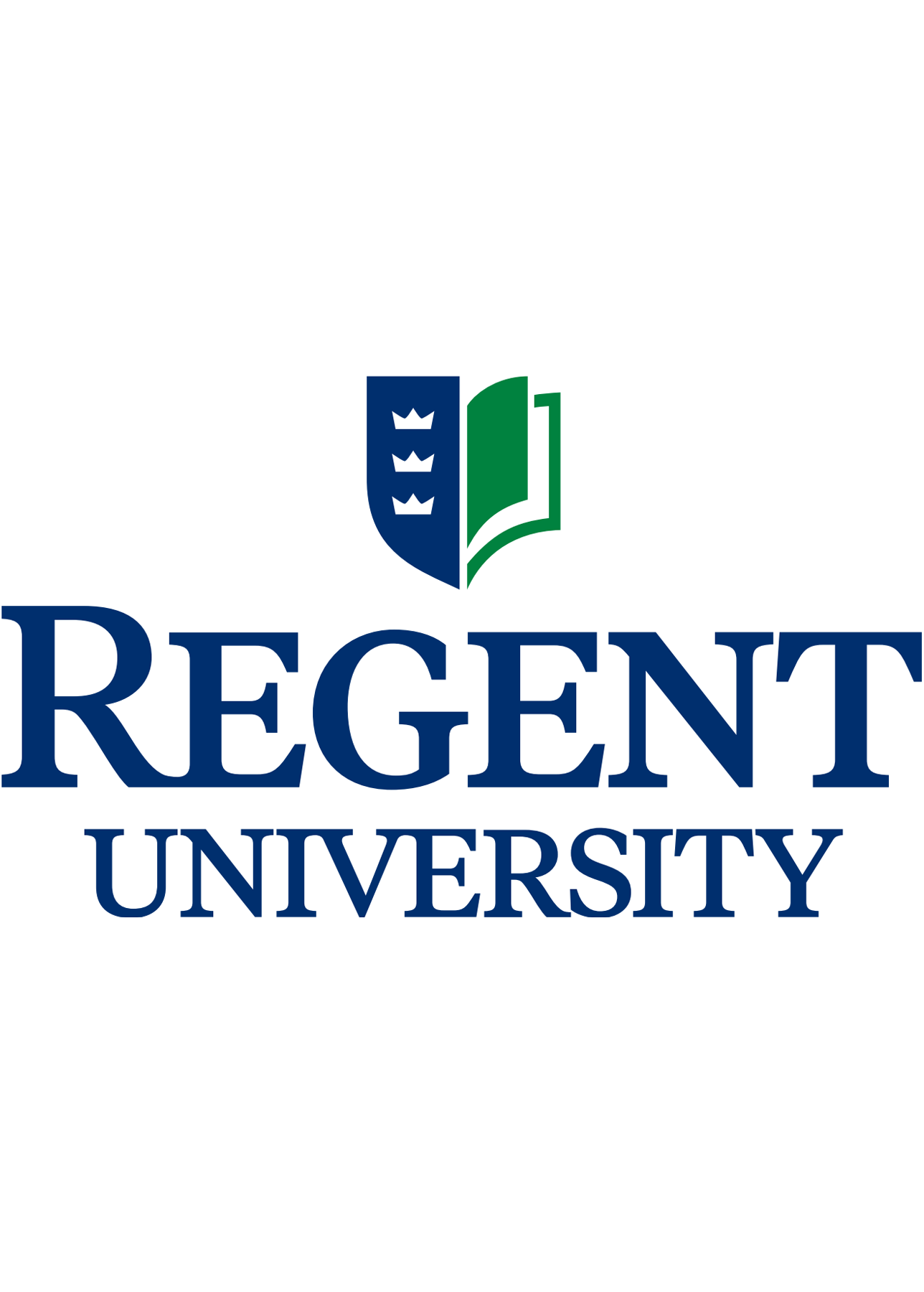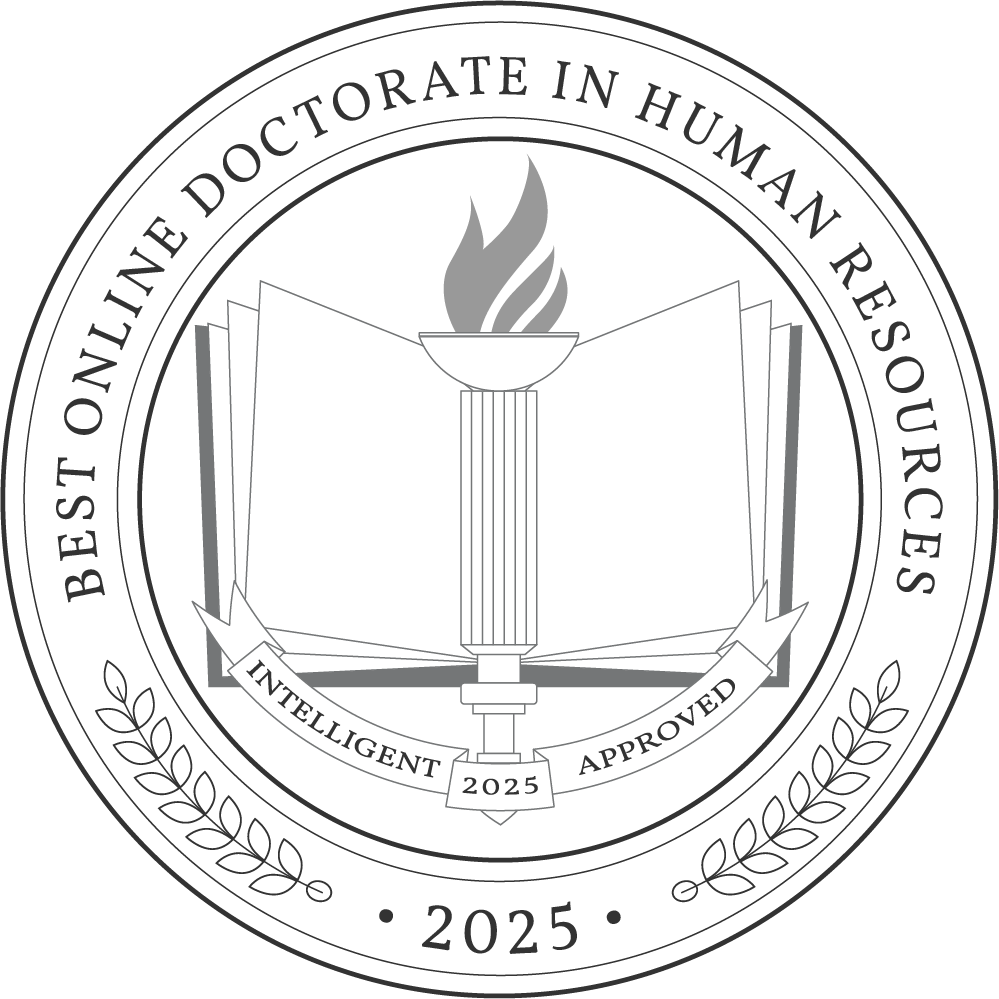If you’re an HR professional looking to level up your career, earning an online doctorate in human resources can be a game-changer. These programs provide progressive knowledge and leadership skills, providing opportunities in executive roles where HR managers earn a median salary of $136,350, with the top 10% exceeding $239,200 annually.
With faster-than-average job growth projected at 5% over the next decade, this field is expected to generate 15,500 new jobs yearly. Most programs take around five years to complete, and the average graduate-level tuition cost is $20,513 per year.
Why Trust Us
The Intelligent.com Higher Education Team is dedicated to providing students with independent, equitable school and program rankings and well-researched resources. Our expert-driven articles cover topics related to online colleges and programs, paying for school, and career outlooks. We use data from the U.S. Department of Education’s College Scorecard, the National Center for Education Statistics, and other reputable educational and professional organizations. Our academic advisory team reviews content and verifies accuracy throughout the year for the most current information. Partnerships do not influence rankings or editorial decisions.
- Analyzed over 2,000 national, accredited, and nonprofit colleges and universities
- 800+ rankings pages are reviewed and updated yearly
- Content is informed by reputable sources, surveys, and interviews with academic advisors and other experts
- Over 100 data points are reviewed for accuracy and quality throughout the year, including sources
How we rank schools
Our list features the best online Human Resources degree programs at top colleges nationwide. Each school featured is a nonprofit, accredited institution — either public or private — with a high standard of academic quality for post-secondary institutions.
We evaluated each school’s program on tuition costs, admission, retention and graduation rates, faculty, reputation, and the student resources provided for online students. We collected data from trusted sources like the National Center for Education Statistics, individual school and program websites, school admissions counselors, and other data sources. Then, we calculated the Intelligent Score on a scale of 0 to 100 based on the following criterion:
Academic Quality:
- Admission rate versus enrollment rate
- Retention rate of students who return after year one
- Accreditation status (regional and programmatic)
- Nonprofit status, both private and public institutions
Graduation Rate
- Overall graduation rate
- Total number of currently enrolled students, including diversity metrics
- Student-to-faculty ratio
Cost and ROI
- In-state and out-of-state per-credit tuition rates and fees
- Required credits to graduate
- Earning potential after graduation
- Availability of federal student loans, scholarships, and other financial aid options
Student Resources
- Available student services for online-only and hybrid programs
- On-campus amenities like tutoring centers and the number of libraries
Read more about our ranking methodology.
Best 9 Accredited Online Doctorate in Human Resources Programs
FiltersInstitution Type
Status
- Intelligent Score
- Alphabetically By University Name
- Acceptance Rate
- Enrollment
- In-state Graduate Tuition
- Out-of-state Graduate Tuition
- In-state Undergraduate Tuition
- Out-of-state Undergraduate Tuition

National University
Intelligent Score: 99.57In-state: $13,320
Out-of-state: $13,320
In-state: $15,480
Out-of-state: $15,480
SAT: N/A
ACT: N/A
$442
Online
WASC Senior College and University Commission
60

Liberty University
Intelligent Score: 99.24In-state: $14,791
Out-of-state: $14,791
In-state: $7,935
Out-of-state: $7,935
SAT: 1040-1250
ACT: 21-29
$650
Online
Accreditation Council for Business Schools and Programs
60

University of Arkansas
Intelligent Score: 98.65In-state: $7,568
Out-of-state: $24,056
In-state: $7,752
Out-of-state: $7,752
SAT: 1090-1280
ACT: 23-29
$437
Online
Higher Learning Commission
96

Regent University
Intelligent Score: 98.39In-state: $17,220
Out-of-state: $17,220
In-state: $15,552
Out-of-state: $15,552
SAT: 940-1220
ACT: 21-29
$1,020
Online
Southern Association of Colleges and Schools Commission on Colleges
60

Thomas Edison State University
Intelligent Score: 97.07In-state: $14,742
Out-of-state: $16,926
In-state: $22,623
Out-of-state: $22,623
SAT: Not Required
ACT: Not Required
$932
Online
Middle States Commission on Higher Education
48

University of Illinois Urbana-Champaign
Intelligent Score: 96.09In-state: $14,317
Out-of-state: $33,824
In-state: $15,016
Out-of-state: $15,016
SAT: 1200-1460
ACT: 27-33
$510
Online, On-Campus
Higher Learning Commission
64

Colorado State University Graduate School
Intelligent Score: 93.97In-state: $9,426
Out-of-state: $28,147
In-state: $10,520
Out-of-state: $10,520
SAT: 1070-1280
ACT: 23-29
Resident: $620
Non-Resident: $1,520
Online
Higher Learning Commission
90

Old Dominion University
Intelligent Score: 93.62In-state: $7,029
Out-of-state: $26,664
In-state: $10,207
Out-of-state: $10,207
SAT: 960-1170
ACT: 18-25
In-State: $599
Out-of-State: $623
Online
Southern Association of Colleges and Schools Commission on Colleges
60

The University of Texas at Tyler
Intelligent Score: 90.2In-state: $11,448
Out-of-state: $40,032
In-state: $12,028
Out-of-state: $12,028
SAT: 1210-1470
ACT: 26-33
Resident: $1,037
Non-Resident: $1,546
Hybrid
Southern Association of Colleges and Schools Commission on Colleges
60
How to Choose an Online Doctorate in Human Resources Program
Choose your area of study
Your area of study for your doctorate in HR will likely align with your past graduate coursework. However, this is also an opportunity to broaden your skill set. To narrow your focus, ask yourself: What HR challenges am I most enthusiastic about? Which skills will advance my career?
For example, students interested in change management might excel in organizational development, while those committed to fostering equitable workplaces might prefer diversity and inclusion. Even further, students focused on navigating unionized environments might thrive in labor relations.
Research schools and programs
Once you have an area of study in mind, you can begin researching schools and programs in earnest. Consider using the following questions to help guide your research:
- Does the program offer a specialization that is aligned with my interests?
- What is the reputation of the faculty in my area of interest?
- Are there opportunities for research collaboration and networking?
- What is the program’s flexibility in terms of pacing and dissertation support?
- What resources are available for online students?
This information can be found on program websites, from admissions counselors, or by connecting with current students or alumni through LinkedIn or Reddit.
Prepare for tests and applications
With your shortlist of schools in hand, it’s time to focus on application prep. Request transcripts and letters of recommendation well in advance, as these can take time to gather. Be sure to set aside ample time to write your personal statement, ensuring it aligns with the program’s standards and illustrates your fit for the specialization.
Many doctoral programs don’t require standardized test scores like the GRE, focusing instead on your graduate coursework, relevant work experience, or recommendation letters. However, if test scores are needed, consider enrolling in a test prep program to boost your results.
Select your program
When acceptance letters arrive, you may have a big decision to make. Take some time to revisit your initial research criteria and focus on what matters most to you – whether it’s the availability of your intended specialization, faculty you’re excited to learn from, or support services for online learners.
This is also the time to reassess each institution’s total cost of attendance and compare these figures with any financial aid offers. You may benefit from giving priority to programs offering scholarships, grants, or fellowships, as these can significantly reduce your financial burden.
Determine how you’ll pay for your degree
For many doctoral students, paying for their degree with minimal to no debt is a top priority. If you’re in a similar position, you can achieve this by prioritizing financial aid resources.
Start with scholarships and grants, which offer funding that doesn’t need to be repaid; while grants are more common at the undergraduate level, opportunities still exist for doctoral students. Next, explore fellowships that can provide substantial support while advancing your education. If you’re employed, ask if your employer offers tuition reimbursement.
Finally, federal loans over private ones should be considered to cover any remaining gaps, as federal loans offer better terms and repayment options. By leveraging these resources, you can minimize debt and manage the cost of your degree effectively.
What Can You Expect From an Online Doctorate in Human Resources Program?
An online doctorate in human resources is designed to elevate HR professionals to executive leadership roles. This terminal degree provides high-level skills in organizational behavior, strategic HR management, and workforce development. As a student, you’ll engage in rigorous coursework, typically completed entirely online, offering flexibility for those balancing their education with their professional lives.
The dissertation is a vital component of these programs, requiring original research that contributes to the HR field. Completion timelines vary, but most students finish in five years or fewer, depending on their pace and dissertation progress.
Potential courses you’ll take in an online doctorate in human resources program
- Human Resources Management in the 21st Century: This foundational course explores the evolving role of HR in modern organizations, focusing on strategic leadership, talent management, and the impact of technology. First-year students will learn to align HR practices with organizational goals to drive success in a competitive global environment.
- Diversity and Inclusion: Commonly a core requirement in most modern curriculums, this course examines the importance of creating inclusive workplaces that embrace diversity. The curriculum covers strategies for fostering a culture of equity, managing diverse teams, and addressing workplace bias and discrimination challenges.
- Compensation and Benefits: This course delves into designing and implementing effective compensation systems. Students will explore compensation models, benefits packages, and legal considerations, learning to structure competitive and equitable reward programs that attract and retain top talent.
- Labor Relations: Students in this course will gain insights into the complexities of labor-management relationships, including collective bargaining, conflict resolution, and labor law. The course prepares learners to navigate and manage unionized environments and address labor disputes effectively.
- The Dissertation Proposal: This course guides students through developing their dissertation proposal, including selecting a research topic, conducting a literature review, and formulating research questions. By the end of the course, students will have a well-structured proposal ready for approval by their dissertation committee.
Online Doctorate in Human Resources Degree Frequently Asked Questions
How do I apply to an online doctorate in human resources degree program?
While specific requirements vary by program, many of these programs share common application criteria — such as:
- A master’s degree from an accredited institution
- Transcripts from previous academic work
- Professional experience in human resources or a related field
- Resume or CV
- Letters of recommendation
- Personal statement or statement of purpose
Speaking to an admissions counselor before applying can be beneficial, as they can provide guidance on program specifics, help assess your qualifications, and offer advice on strengthening your application.
How much does an online doctorate in human resources degree cost?
The cost of these programs can vary, but according to the most recent data from the National Center for Education Statistics, the average annual tuition for graduate programs is $20,513.
Beyond tuition, you’ll also want to budget for additional expenses such as technology fees and potential costs for textbooks or software required for coursework. While the inherent flexibility of online programs can be valuable, being prepared for these extra costs associated with distance learning is essential.
How long does it take to earn an online doctorate in human resources degree?
Earning this degree usually takes about five years, though this can vary. Online enrollment offers plenty of flexibility, with many programs allowing students to progress at their own pace – which may shorten or extend the timeline. It’s important to remember that completing your dissertation can also take time, inadvertently affecting completion times. Some students may move faster, while others may take longer due to research demands.
Lastly, be sure to double-check the total number of required credits, as these can vary by program and significantly impact how long it takes to complete your degree.

